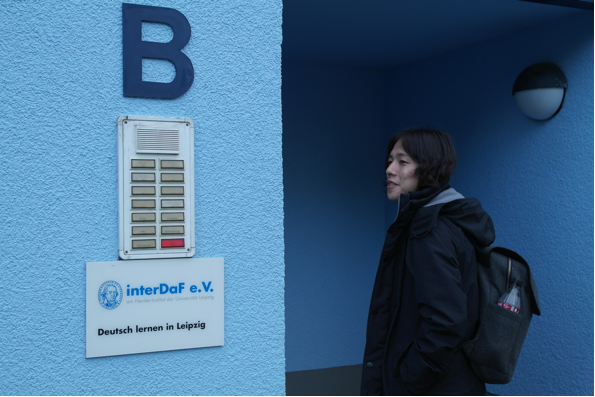By YAO Yuxin
“Entschuldigung, ”Michael Mai, 19, says “excuse me” in German as he walks through a crowd. Mai, from Shenzhen, China, has been a freshman at Leipzig University in Germany for the last 10 months.
Before Leipzig, Mai studied environmental science and engineering in Guangdong, China. He had wanted to study chemistry, but didn’t get accepted. So he decided to go abroad.
“My family members then thought that studying abroad was a better choice. Compared with going to English-speaking countries, I’d like to be somewhere to learn a new language,” Mai says.
Mai is one of about 2,700 international students, only 10 percent of whom are Chinese, at LU. And he is part of a growing number of Chinese students going abroad for education.
Because Mai didn’t speak German, which his science classes will be taught in, he is only taking language classes his first year.
“In the beginning, I really doubted that I could learn a new language without the help of another language I knew before. But it did work. Teachers have their own approaches,” he says, adding that his test scores have been high.
Mai’s new friends are mostly other international students also taking language classes. He doesn’t spend much time with the few Chinese students.
“I want to have the atmosphere to speak German. Also, I find it more interesting to have friends from all over the world than to be with several Chinese friends everyday,” he says.
Mai chose Germany based on the German reputation for being rigorous. He thought it would be a good place to study science. “Also, there’s no tuition fee for undergraduate or graduate students in Germany,” he says.
Compared to China, Mai’s lifestyle is gradually changing, he says. “Sometimes I go to parks,” he says. ”They are quiet places and I’m afraid that I won’t get used to the crowded streets in Shenzhen when I go back in July.”
Moving from a city of more than 7 million to just over 500,000 has required other adjustments as well. “Shopping malls are rarely found and I haven’t seen any karaoke here,” Mai says. “Maybe life in Leipzig will be different after I know some local friends and join student clubs or societies.”
The number of Chinese students going abroad for school increased 11 percent in 2014 to nearly 460,000 students, the majority of whom will return to China if trends continue, according to the Chinese Ministry of Education.
But Mai doesn’t know if he’ll return or not. “I went to the U.S. last winter and I really like some cities in California. Maybe I’ll try American life in the future, for further study or career,” he says.
But he prefers to focus on his present life rather than his future. “Future is something that hasn’t come, who knows it for sure?” he says. “I believe that as long as I go forward, there will be roads.”
